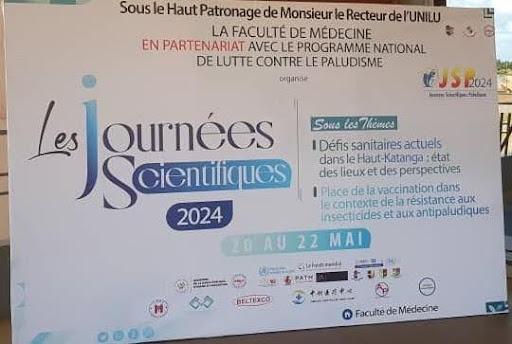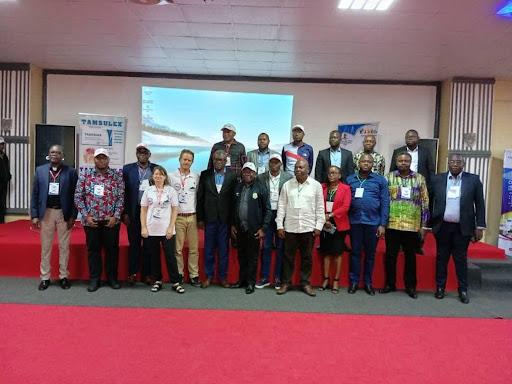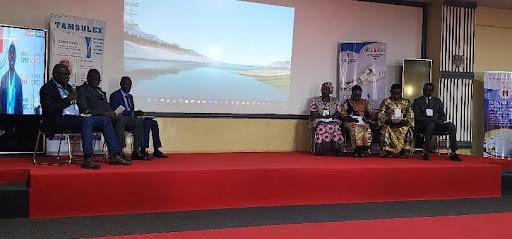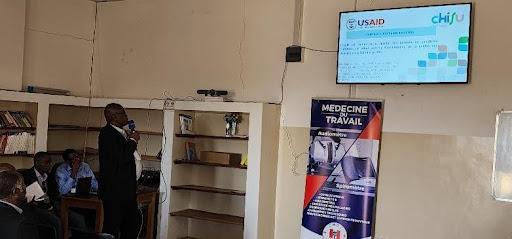
Half of the world’s population is at risk for malaria, with the greatest burden in countries in sub-Saharan Africa. To learn from efforts to curb the disease in the Democratic Republic of Congo (DRC), the Faculty of Medicine of the University of Lubumbashi and the National Malaria Control Program (PNLP), with support from its partners USAID and Global Fund, hosted the joint Scientific Days conference from May 20–23, 2024, at the University of Lubumbashi.
The conference included 315 participants who heard from scientific experts from the Universities of Kinshasa, Kisangani, Bukavu, Mbuji Mayi, Lubumbashi, along with public health experts from the Ministry of Health and public health partners from different provinces of the DRC, including Kongo Central, Kinshasa, Haut-Katanga, and Lualaba. Participants also came from outside the DRC, including the United States.

Panel discussions on malaria focused on the new recommendations for the management of malaria in DRC, with a particular focus on Haut-Katanga Province. Panelists discussed the changes in national malaria management guidelines that DRC has experienced over the past 20 years, the country policy for preventive and curative treatment of malaria at different levels of the DRC health system, and the challenges and perspectives in malaria prevention such as long-term malaria chemoprophylaxis (MCP) and the introduction of malaria vaccination.

In addition, presenters shared these innovative approaches on preventing and managing malaria:
- Anti-malaria vaccination: In addition to prophylaxis, employing insecticides and mosquito nets treated with long-lasting insecticides along with anti-malaria vaccination is a promising strategy to prevent malaria transmission and reduce its morbidity and mortality. Several studies highlighted the encouraging results of the R21-Matrix-M vaccine.
- Insecticide resistance: Mosquito vectors’ resistance to insecticides is a major concern. Based on current evidence, experts highlighted the need to develop new classes of insecticides and implement innovative resistance management strategies to face the growing challenges facing the NMCP and providers.
- Antimalarial drug resistance: The emergence of drug-resistant strains of malaria parasites pose a major challenge to effectively treat the disease. Continued surveillance of antimalarial drug resistance in the DRC and the appropriate use of drugs to prevent the emergence and spread of resistance is critical. These complex challenges for the PNLP and its partners require a comprehensive and coordinated approach shared across researchers, health professionals, health authorities, and communities in Haut-Katanga and the surrounding areas.
- Malaria data quality: Data quality audits play an important role in guiding malaria control policies and strategies. CHISU shared the importance of data quality audits as an effective intervention to improve the quality of reported data.
Overall, the speakers underscored the importance of collaboration across health actors, local authorities, and communities to address the health challenges facing the Haut-Katanga Province in a holistic and sustainable manner. Through this collaboration, malaria control interventions will be more effective in serving the inhabitants of the Haut-Katanga Province and the surrounding areas.

Other Recent News
A high-level delegation from USAID, CDC, PEPFAR, and the U.S. Department of State visited Haiti in October 2024 to learn about progress and challenges. Read more ›
CHISU’s partner city in Indonesia wins award for its commitment to integrated primary care
In Indonesia, we have supported Mojokerto City to launch its Integrated Primary Health Care (ILP) program. Mojokerto recently won an award honoring its commitment to the ILP program. Read more ›